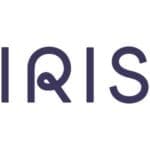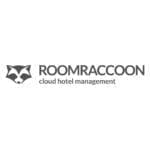 In the fast-paced world of hospitality, excellence in service delivery is not just a goal; it’s a necessity. Let’s explore the crucial difference between tactical training, which addresses immediate guest complaints, and strategic training, centred around certifications to elevate the professional development of your team members. By understanding the benefits of both approaches and how they can work together, your hotel can achieve comprehensive success in onboarding, development, service delivery and profitability.
In the fast-paced world of hospitality, excellence in service delivery is not just a goal; it’s a necessity. Let’s explore the crucial difference between tactical training, which addresses immediate guest complaints, and strategic training, centred around certifications to elevate the professional development of your team members. By understanding the benefits of both approaches and how they can work together, your hotel can achieve comprehensive success in onboarding, development, service delivery and profitability.
Tactical training: addressing immediate needs
Tactical training in the hotel industry addresses immediate concerns and guest complaints. It’s like putting out fires as they arise. Here’s how it benefits your hotel:
- Quick problem-solving Tactical training equips your team to handle unexpected guest issues efficiently and professionally, ensuring immediate guest satisfaction.
- Enhanced guest experience: By addressing complaints promptly, you can turn negative experiences into positive ones, leaving guests with a lasting, favourable impression.
- Reduced guest churn: Solving problems on the spot reduces the likelihood of guests leaving dissatisfied, which can positively impact your hotel’s reputation and repeat business.
This type of training is reactive and usually occurs after a guest complaint or issue. It’s meant to provide a quick solution to a specific problem. For example, if a guest complains about a dirty room, you’d offer a housekeeping team member training on how to clean the room in the future more thoroughly. Tactical training is all about providing your team with the skills they need to succeed in the moment. The main benefit of tactical training is that it can immediately improve your team’s service delivery and help you head off potential issues before they become major problems.
Strategic training: elevating professional development
Strategic training, on the other hand, is about long-term investment in your team members’ skills and careers. It involves using certifications and structured frameworks to support professional growth:
- Skill enhancement: Certifications provide a structured path for team members to enhance their skills and knowledge, contributing to their professional growth.
- Succession planning: With strategic training, you can identify and groom future leaders within your organization, ensuring a smooth transition when key positions become vacant.
- Benchmarking service: Certifications establish a benchmark for service quality, allowing you to identify and close skills gaps systematically.
- Operational efficiency: Well-trained professionals are more efficient, which can lead to reduced operational costs and improved profitability.
Comprehensive excellence: tactical and strategic training together
While tactical and strategic training have their merits, the true power lies in combining them. Here’s how their synergy can benefit your hotel:
- Onboarding excellence: Tactical training welcomes new team members with immediate problem-solving skills, while strategic training sets them on a path of continuous development.
- Customized development: Strategic training tailors certification programs to each team member’s skills and experience, fostering a culture of growth.
- Service benchmarking: Tactical training handles immediate concerns, while strategic training optimises long-term service quality, ensuring guests consistently receive top-notch service.
- Operational efficiency and profitability: A well-trained team is efficient and cost-effective, reducing turnover and payroll costs and ultimately driving profitability.
eHotelier Academy: Tactical and Strategic Training Working Together
eHotelier’s CareerTack provides your team with both types of training. You can create a comprehensive approach to staff development that can support everything from onboarding to succession planning. When a new team member joins your hotel or restaurant, you can offer them tactical training to quickly get up to speed on their job responsibilities. From there, you can provide them with strategic training to help them build the skills they need to succeed long-term. Over time, this approach can help you build a team of highly skilled, motivated professionals who are primed for success.
Another way that tactical and strategic training can work together is through benchmarking. By using tools like baseline, you can better understand where your team stands regarding skills gaps that need to be addressed. Through our integration with Maestro, the Duty Manager Log Book assists you in identifying service gaps through guest feedback.Tactical training can then be used to quickly fill these gaps and improve service delivery across the board. The result is that you’ll be able to consistently exceed guest expectations in terms of service, which can help build your hotel or restaurant’s reputation and drive profitability.
Both tactical and strategic training play roles in the hospitality industry. The key is finding the right balance between the two to create a comprehensive approach to staff development. With the right mix of tactical and strategic training, you can onboard new team members more effectively, develop each team member based on their skills and experience, support succession planning, benchmark service delivery, deliver increased operational efficiency, exceed guest expectations, and reduce turnover and payroll costs. By investing in your team’s professional development, you’ll be able to create a positive work environment, build a reputation for exceptional service, and drive long-term success for your hotel or restaurant.




















